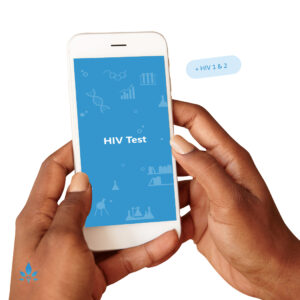COVID-19 Risk Factors – HIV/AIDS


There are certain factors like HIV/AIDS that put particular groups of people at higher risk of experiencing severe disease if infected by SARS CoV-2. Click here for an overview.
Demographics and underlying health conditions are two major categories, but there are other factors that can also increase your risk.
These include:
This article covers HIV and AIDS.
Does having HIV increase the risk of developing severe symptoms following infection with SARS CoV-2?
The short answer to this question is probably not. The evidence available to date suggests that, provided your Human Immunodeficiency Virus (HIV) is well managed, you are no more likely to develop serious complications than the general population. There are, however, exceptions to this, patients who:
- Have a low CD4 count ( < 200 copies/cell). This can be a sign of a compromised immune system.
- Are not currently on antiretroviral treatment. Not being on medication means that the HIV virus is free to attack your immune system, putting you at a higher risk of developing Acquired Immuno-Deficiency Syndrome (AIDS).
- Fall into another high risk category; for example over 65 years old, co-existing medical conditions affecting the heart, lungs, liver or kidney.
AIDS is a progressive condition that results in the destruction of the immune system. Without a functioning immune system, you will become immunocompromised, meaning that it will be more difficult for your body to fight an infection. This increases the likelihood of you experiencing more severe symptoms, should you become infected with SARS CoV-19.
Could antiretroviral medication be used to treat COVID-19?
As the scientific and medical communities desperately work to find an effective treatment against COVID-19, one early contender was the antiretroviral lopinavir. Preliminary results were positive when this drug was explored as an option for managing the other respiratory infections, MERS and SARS; however, the studies needed substantial validation. Unfortunately the trials performed to date on patients severely ill with COVID-19 have found no improvement in clinical symptoms or overall death rates following treatment with lopinavir, when compared to standard care.
Investigating alternative antiretroviral agents and treatment regimens is an area that warrants further study.
I have HIV, what should I do?
If you have HIV you should already be under the care of an appropriate healthcare provider who can properly monitor your condition and ensure that it remains well controlled. This will include providing you with the necessary tools and guidance to reduce your exposure to infections in general.
Adopting good personal hygiene procedures and ensuring reasonable overall health is essential and will minimise your risk of getting infected by SARS CoV-2 or becoming seriously ill.
Sources:
- Cao, Bin, et al. “A Trial of Lopinavir–Ritonavir in Adults Hospitalized with Severe Covid-19.” New England Journal of Medicine, vol. 382, no. 19, 7 May 2020, pp. 1787–1799., doi:10.1056/nejmoa2001282.
- “Coronavirus (COVID-19) and HIV.” Avert, 3 June 2020, www.avert.org/coronavirus/covid19-HIV.
- “COVID-19 and HIV: What You Need to Know.” Iasociety, www.iasociety.org/covid-19-hiv.
- “What to Know About HIV and COVID-19.” Centers for Disease Control and Prevention, Centers for Disease Control and Prevention, 18 Mar. 2020, www.cdc.gov/coronavirus/2019-ncov/need-extra-precautions/hiv.html.













































